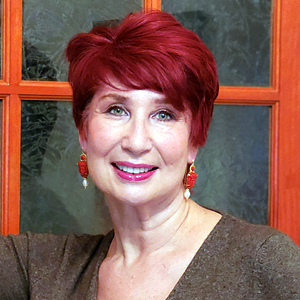High-Quality Care for the Treatment of Acoustic Neuroma

When Maria Kron’s husband said he noticed she appeared to have a hearing decrease on one side, she decided to humor him and prove him wrong by making an appointment with an ear, nose, and throat (ENT) doctor. Testing at that appointment identified her hearing had decreased, and after ordering a magnetic resonance imaging (MRI), doctors found Maria had an acoustic neuroma.
An acoustic neuroma is a noncancerous, slow-growing tumor that forms between the brain and the inner ear. If left untreated, an acoustic neuroma can lead to serious complications, such as vertigo, ringing in the ears, hearing loss, and balance disorders. In some cases, an acoustic neuroma can become life-threatening if it grows large enough to press on the brain.
“I feel very lucky that my husband caught it before worse symptoms manifested,” said Maria.
In November of 2024, Maria was told she could wait to seek treatment or move forward. After speaking with family and friends, they decided not to postpone treatment since she already had lost some hearing.
“There really was no purpose waiting around. I’m only 55 years old, and if I waited, the tumor would have time to grow. We decided to start looking for places that had good reputations and came across Valley,” said Maria.
Maira made an appointment at the Valley Gamma Knife Center and met with William Cobb, MD, PhD, FAANS, neurosurgeon, and Chad DeYoung, MD, Co-Medical Director, Radiation Oncology, The Valley Hospital. They determined she was a good candidate for Gamma Knife radiosurgery, which uses beams of highly focused radiation to shrink or destroy tumors of the head and neck without damaging surrounding tissue.
In February 2025, Maria had Gamma Knife radiosurgery. “They talked me through the procedure, so I knew what to expect. All those I came into contact with knew how to care for patients in a very patient and humane way. I was blown away by the quality of care,” said Maria. “They made me feel important, heard, and understood.”
The procedure garnered no complications, and Maria is doing well. In a year, she will have a follow-up MRI and hearing test.
“When you hear the word brain tumor, it knocks the air out of your lungs,” said Maria. “But once everything is clearly explained and you are given hope, and then you get the easy and comfortable procedure with a positive outcome, that is truly amazing.”
